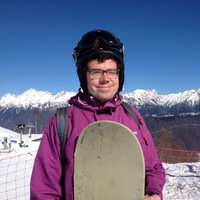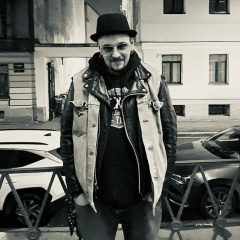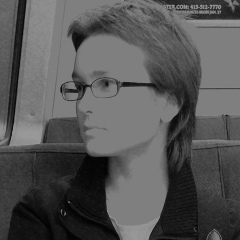На фото мой дед, Жуков Пётр Фёдорович (1923г.р.).
За участие в обороне Сталинграда, краснофлотец Жуков П.Ф. был награжден медалями – За боевые заслуги и За оборону Сталинграда 22 декабря 1942 года. А также "За взятие Будапешта (Венгрия)" 13 февраля 1945 года и "За взятие Вены (Австрия)" 13 апреля 1945 года.
Его сын, мой отец, так описал воспоминания о военных годах:
Из рассказов отца, свою службу в армии он начал с пешего похода новобранцев собранных с села в город Сталинград. По приходу в Сталинград, их стали направлять в учебки – подготовка к военным специальностям.
У отца оказался хороший музыкальный слух (не зря его дед учил игре на балалайке). Он попал на курсы по подготовке радистов общающихся с помощью азбуки Морзе. Во время войны это была самая надежная связь. Она шифровалась, чтоб противник не знал, какая выслана информация. Да и сам радио передатчик, весом от 10 до 20 кг. радист мог переносить с собой.
После учебки, его распределили в Волжскую флотилию.
В это время фашисты (почему не пишу немцы, так как в армию фашистов кроме их входили и итальянцы и румыны и венгры и многие другие национальности из других стран) рвались к Сталинграду. Перекрыв движение по реке Волга, они, могли перекрыть подвоз нефти из Баку. Практически всё горючее для танков, самолетов и другой военной и гражданской техники изготавливалось из Каспийской нефти.
Поэтому битва за Сталинград с лета1942 года, по январь 1943 года, решала судьбу страны.
На один из катеров тральщиков, летом 1942года, поступил служить радистом краснофлотец Жуков П.Ф.
Отец рассказывал, как он первый раз ощутил дыхание смерти на войне. Не прошло и 2-х дней, после прихода служить на тральщике. Катер стоял у берега, и он услышал надвигающийся гул самолетов. Небо с запада становилось темным от немецких бомбардировщиков.
- Я спрятался у себя в радиорубке (покидать пост не было команды). Катер бросало из стороны в сторону от бомб, падающих в воду. Но страх испытывал не от этого, а от воя падающих бомб. После боцман спросил, где я был во время налета, и отругал и приказал при налете убегать с катера. На следующий день, при налете самолетов, я уже побежал с катера. Бежал туда, куда бежала основная масса народа. Залегли в яру, но немцу, то видно где мы спрятались, и он не только бомбит нас, но ещё и с пулемета поливает. Слышишь, как кто-то рядом застонал, ощущаешь, как тебя осыпает землёй, от рядом врезавшихся в землю пуль. Только после этого я понял, что надо прятаться не с основной массой народа.
Спрашивал я его, участвовал ли он в атаках на немцев.
- Однажды поступила команда, одеться во все чистое, выдали трехлинейки, со штыками и вывезли близко к передовой, вместе с батальоном морской пехоты. В окопе ждем атаки. Взвилась сигнальная ракета, с криками ура, мы пошли в атаку. Только после этого заметили, что атака не настоящая, нас снимают киножурналисты. Да, такой массовой радости и криков ура, мне не пришлось испытать за всю жизнь. Я очень жалел тех ребят, которые попали в морскую пехоту. Порой до 50% после настоящих атак было только раненых.
Да, отец выполнял свою функцию радиста на войне, и ему повезло в том, что он не оказался в тех 16 катерах тральщиках из 33, которые были потоплены, под Сталинградом, а также в других сражениях при освобождении своей страны и Европы. По данным военной статистики, за время Великой Отечественной войны, из призванных в Советскую армию новобранцев, родившихся в 1923 году, осталось в живых, только 3%. Стране не хватало молодых в армии. Поэтому отец и служил после войны еще 4 года.
p.s. от себя: после войны дед женился, и вместе с бабушкой они родили троих детей и семерых внуков. Работал по специальности, которую получил накануне войны - бухгалтером, в плоть до пенсии. Его не стало, когда мне было 7 лет, в апреле 94го. День Победы был для дедушки самым любимым праздником. Светлая память ему.
Слава Народу-Победителю! С Днём Победы!
За участие в обороне Сталинграда, краснофлотец Жуков П.Ф. был награжден медалями – За боевые заслуги и За оборону Сталинграда 22 декабря 1942 года. А также "За взятие Будапешта (Венгрия)" 13 февраля 1945 года и "За взятие Вены (Австрия)" 13 апреля 1945 года.
Его сын, мой отец, так описал воспоминания о военных годах:
Из рассказов отца, свою службу в армии он начал с пешего похода новобранцев собранных с села в город Сталинград. По приходу в Сталинград, их стали направлять в учебки – подготовка к военным специальностям.
У отца оказался хороший музыкальный слух (не зря его дед учил игре на балалайке). Он попал на курсы по подготовке радистов общающихся с помощью азбуки Морзе. Во время войны это была самая надежная связь. Она шифровалась, чтоб противник не знал, какая выслана информация. Да и сам радио передатчик, весом от 10 до 20 кг. радист мог переносить с собой.
После учебки, его распределили в Волжскую флотилию.
В это время фашисты (почему не пишу немцы, так как в армию фашистов кроме их входили и итальянцы и румыны и венгры и многие другие национальности из других стран) рвались к Сталинграду. Перекрыв движение по реке Волга, они, могли перекрыть подвоз нефти из Баку. Практически всё горючее для танков, самолетов и другой военной и гражданской техники изготавливалось из Каспийской нефти.
Поэтому битва за Сталинград с лета1942 года, по январь 1943 года, решала судьбу страны.
На один из катеров тральщиков, летом 1942года, поступил служить радистом краснофлотец Жуков П.Ф.
Отец рассказывал, как он первый раз ощутил дыхание смерти на войне. Не прошло и 2-х дней, после прихода служить на тральщике. Катер стоял у берега, и он услышал надвигающийся гул самолетов. Небо с запада становилось темным от немецких бомбардировщиков.
- Я спрятался у себя в радиорубке (покидать пост не было команды). Катер бросало из стороны в сторону от бомб, падающих в воду. Но страх испытывал не от этого, а от воя падающих бомб. После боцман спросил, где я был во время налета, и отругал и приказал при налете убегать с катера. На следующий день, при налете самолетов, я уже побежал с катера. Бежал туда, куда бежала основная масса народа. Залегли в яру, но немцу, то видно где мы спрятались, и он не только бомбит нас, но ещё и с пулемета поливает. Слышишь, как кто-то рядом застонал, ощущаешь, как тебя осыпает землёй, от рядом врезавшихся в землю пуль. Только после этого я понял, что надо прятаться не с основной массой народа.
Спрашивал я его, участвовал ли он в атаках на немцев.
- Однажды поступила команда, одеться во все чистое, выдали трехлинейки, со штыками и вывезли близко к передовой, вместе с батальоном морской пехоты. В окопе ждем атаки. Взвилась сигнальная ракета, с криками ура, мы пошли в атаку. Только после этого заметили, что атака не настоящая, нас снимают киножурналисты. Да, такой массовой радости и криков ура, мне не пришлось испытать за всю жизнь. Я очень жалел тех ребят, которые попали в морскую пехоту. Порой до 50% после настоящих атак было только раненых.
Да, отец выполнял свою функцию радиста на войне, и ему повезло в том, что он не оказался в тех 16 катерах тральщиках из 33, которые были потоплены, под Сталинградом, а также в других сражениях при освобождении своей страны и Европы. По данным военной статистики, за время Великой Отечественной войны, из призванных в Советскую армию новобранцев, родившихся в 1923 году, осталось в живых, только 3%. Стране не хватало молодых в армии. Поэтому отец и служил после войны еще 4 года.
p.s. от себя: после войны дед женился, и вместе с бабушкой они родили троих детей и семерых внуков. Работал по специальности, которую получил накануне войны - бухгалтером, в плоть до пенсии. Его не стало, когда мне было 7 лет, в апреле 94го. День Победы был для дедушки самым любимым праздником. Светлая память ему.
Слава Народу-Победителю! С Днём Победы!
In the photo my grandfather, Petr Fyodorovich Zhukov (born in 1923).
For participation in the defense of Stalingrad, the Red Navy Zhukov P.F. was awarded medals - For Military Merit and For the Defense of Stalingrad on December 22, 1942. And also "For the capture of Budapest (Hungary)" on February 13, 1945 and "For the capture of Vienna (Austria)" on April 13, 1945.
His son, my father, described his memories of the war years as follows:
From the stories of his father, he began his service in the army with a hike of recruits gathered from the village to the city of Stalingrad. Upon arrival in Stalingrad, they began to be sent to training - preparation for military specialties.
My father had a good ear for music (it was not for nothing that his grandfather taught to play the balalaika). He got into courses for the training of radio operators communicating using Morse code. During the war, this was the most reliable connection. It was encrypted so that the enemy did not know what information was sent. And the radio transmitter itself, weighing from 10 to 20 kg. the radio operator could carry with him.
After training, he was assigned to the Volga flotilla.
At this time, the fascists (why don't I write the Germans, since in addition to them, Italians and Romanians and Hungarians and many other nationalities from other countries entered the fascist army) were eager to Stalingrad. By blocking traffic on the Volga River, they could block the supply of oil from Baku. Almost all fuel for tanks, aircraft and other military and civilian equipment was made from Caspian oil.
Therefore, the battle for Stalingrad from the summer of 1942 to January 1943, decided the fate of the country.
On one of the boats minesweepers, in the summer of 1942, the Red Navy man P.F. Zhukov entered to serve as a radio operator.
My father told how he first felt the breath of death in the war. Not even 2 days have passed since he came to serve on a minesweeper. The boat was standing near the shore, and he heard the approaching drone of aircraft. The sky from the west was getting dark with German bombers.
- I hid in my radio room (there was no command to leave the post). The boat was thrown from side to side from the bombs falling into the water. But I felt fear not from this, but from the howling of falling bombs. After the boatswain asked where I was during the raid, and scolded and ordered to run away from the boat during the raid. The next day, when the planes raided, I already ran from the boat. He ran to where the bulk of the people fled. We lay down in the hole, but the German, then you can see where we hid, and he not only bombards us, but also watering us with a machine gun. You hear how someone groaned nearby, you feel how earth showered you with bullets hitting the ground nearby. Only after that did I understand that I should not hide with the bulk of the people.
I asked him if he participated in the attacks on the Germans.
- Once a command came in, put on everything clean, gave out three-rulers, with bayonets and took them close to the front line, together with a battalion of marines. We are waiting for an attack in the trench. A signal rocket went off, shouts of hurray, we went on the attack. Only after that did they notice that the attack was not real, we were filmed by film journalists. Yes, I have never experienced such mass joy and cries of hurray in my entire life. I was very sorry for those guys who ended up in the Marines. Sometimes up to 50% after real attacks were only wounded.
Yes, my father fulfilled his function as a radio operator in the war, and he was lucky that he did not end up in those 16 of the 33 minesweepers that were sunk near Stalingrad, as well as in other battles during the liberation of his country and Europe. According to military statistics, during the Great Patriotic War, only 3% of the recruits who were born in 1923 were drafted into the Soviet army. The country lacked young people in the army. Therefore, my father served after the war for another 4 years.
p.s. from myself: after the war, my grandfather got married, and together with their grandmother they gave birth to three children and seven grandchildren. He worked in his specialty, which he received on the eve of the war - as an accountant, until he retired. He died when I was 7 years old, in April 94th. Victory Day was the most favorite holiday for my grandfather. Bright memory to him.
Glory to the Victory People! Happy Victory Day!
For participation in the defense of Stalingrad, the Red Navy Zhukov P.F. was awarded medals - For Military Merit and For the Defense of Stalingrad on December 22, 1942. And also "For the capture of Budapest (Hungary)" on February 13, 1945 and "For the capture of Vienna (Austria)" on April 13, 1945.
His son, my father, described his memories of the war years as follows:
From the stories of his father, he began his service in the army with a hike of recruits gathered from the village to the city of Stalingrad. Upon arrival in Stalingrad, they began to be sent to training - preparation for military specialties.
My father had a good ear for music (it was not for nothing that his grandfather taught to play the balalaika). He got into courses for the training of radio operators communicating using Morse code. During the war, this was the most reliable connection. It was encrypted so that the enemy did not know what information was sent. And the radio transmitter itself, weighing from 10 to 20 kg. the radio operator could carry with him.
After training, he was assigned to the Volga flotilla.
At this time, the fascists (why don't I write the Germans, since in addition to them, Italians and Romanians and Hungarians and many other nationalities from other countries entered the fascist army) were eager to Stalingrad. By blocking traffic on the Volga River, they could block the supply of oil from Baku. Almost all fuel for tanks, aircraft and other military and civilian equipment was made from Caspian oil.
Therefore, the battle for Stalingrad from the summer of 1942 to January 1943, decided the fate of the country.
On one of the boats minesweepers, in the summer of 1942, the Red Navy man P.F. Zhukov entered to serve as a radio operator.
My father told how he first felt the breath of death in the war. Not even 2 days have passed since he came to serve on a minesweeper. The boat was standing near the shore, and he heard the approaching drone of aircraft. The sky from the west was getting dark with German bombers.
- I hid in my radio room (there was no command to leave the post). The boat was thrown from side to side from the bombs falling into the water. But I felt fear not from this, but from the howling of falling bombs. After the boatswain asked where I was during the raid, and scolded and ordered to run away from the boat during the raid. The next day, when the planes raided, I already ran from the boat. He ran to where the bulk of the people fled. We lay down in the hole, but the German, then you can see where we hid, and he not only bombards us, but also watering us with a machine gun. You hear how someone groaned nearby, you feel how earth showered you with bullets hitting the ground nearby. Only after that did I understand that I should not hide with the bulk of the people.
I asked him if he participated in the attacks on the Germans.
- Once a command came in, put on everything clean, gave out three-rulers, with bayonets and took them close to the front line, together with a battalion of marines. We are waiting for an attack in the trench. A signal rocket went off, shouts of hurray, we went on the attack. Only after that did they notice that the attack was not real, we were filmed by film journalists. Yes, I have never experienced such mass joy and cries of hurray in my entire life. I was very sorry for those guys who ended up in the Marines. Sometimes up to 50% after real attacks were only wounded.
Yes, my father fulfilled his function as a radio operator in the war, and he was lucky that he did not end up in those 16 of the 33 minesweepers that were sunk near Stalingrad, as well as in other battles during the liberation of his country and Europe. According to military statistics, during the Great Patriotic War, only 3% of the recruits who were born in 1923 were drafted into the Soviet army. The country lacked young people in the army. Therefore, my father served after the war for another 4 years.
p.s. from myself: after the war, my grandfather got married, and together with their grandmother they gave birth to three children and seven grandchildren. He worked in his specialty, which he received on the eve of the war - as an accountant, until he retired. He died when I was 7 years old, in April 94th. Victory Day was the most favorite holiday for my grandfather. Bright memory to him.
Glory to the Victory People! Happy Victory Day!

У записи 26 лайков,
0 репостов,
275 просмотров.
0 репостов,
275 просмотров.
Эту запись оставил(а) на своей стене Константин Жуков















































